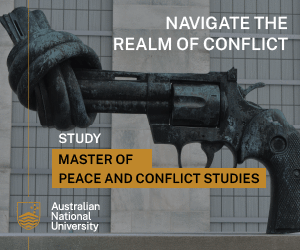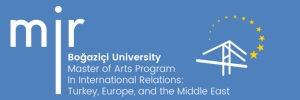What Lessons for the Organization and Conduct of Intelligence can be Drawn from 9/11?
“The terrorist attacks of the September 11th 2001” have, as Len Scott and Peter Jackson assert, “brought intelligence issues to the forefront of both official and popular discourse on security and international affairs.”[1] Not since the Japanese strike on Pearl Harbour in 1941 has an ‘intelligence failure’ had such ramifications on the United States intelligence agencies, and upon the global intelligence community. The aftermath of the terrorist atrocities visited upon the United States in 2001 has led to numerous commissions and reviews regarding the organisation and conduct of the US intelligence agencies, and the manner in which data is managed and disseminated.
Is the Emergence of International Terrorism Likely to Further Undermine the Institution of the State?
In the post-September 11th world international terrorism is synonymous with catastrophic violence and unprecedented threats to states. International terrorist groups, by their structure, makeup as non-state actors, logistical mechanisms and resources are inherently unpredictable. As we have seen in the bombing of Madrid and the ongoing violence in Iraq, terrorist groups have expanded beyond national boundaries and therefore have an unparalleled ability to strike globally. The common impression of the phenomenon of international terrorism is that it is ‘more dangerous or at least more difficult to counter’[2]than conventional, often nationalistic and politically-motivated, terrorism.
Is it Possible to Ethically Evaluate Terrorism by Employing Just War Principles?
The Just War tradition has been seen as a leading perspective on the ethics of war since the writings of St Augustine were rearticulated by Thomas Aquinas. It attempts to provide a framework which validates just conflicts, whilst at the same time applying limits so as to prevent unrestrained warfare. Today, its core principles can be divided into two broad categories: ‘jus ad bellum’ (just resort to war) and ‘jus in bello’ (just conduct in war). For a war to be just, numerous criteria must be satisfied within these categories.
The Strengths and Weaknesses of ‘Securitizing’ Disease
Since the end of the Cold War many academics and politicians have argued for a broadening of the ‘Security Studies’ agenda. The Realist emphasis on military threat seems to be less relevant for much of the world, with the number of inter-state and civil conflicts falling dramatically since 1989 (Human Security Centre, 2005: 1).
How convincing is the idea of ‘international society’ at the centre of the English school approach?
There are many labels attached to theories within International Relations, the English school being no exception; commonly referred to as Rationalist, Grotian or after any of its key supporters (Bull, Wight, Vincent &c.). The multitude of names alludes to the nature of the theory, for there are multiple interpretations of […]





